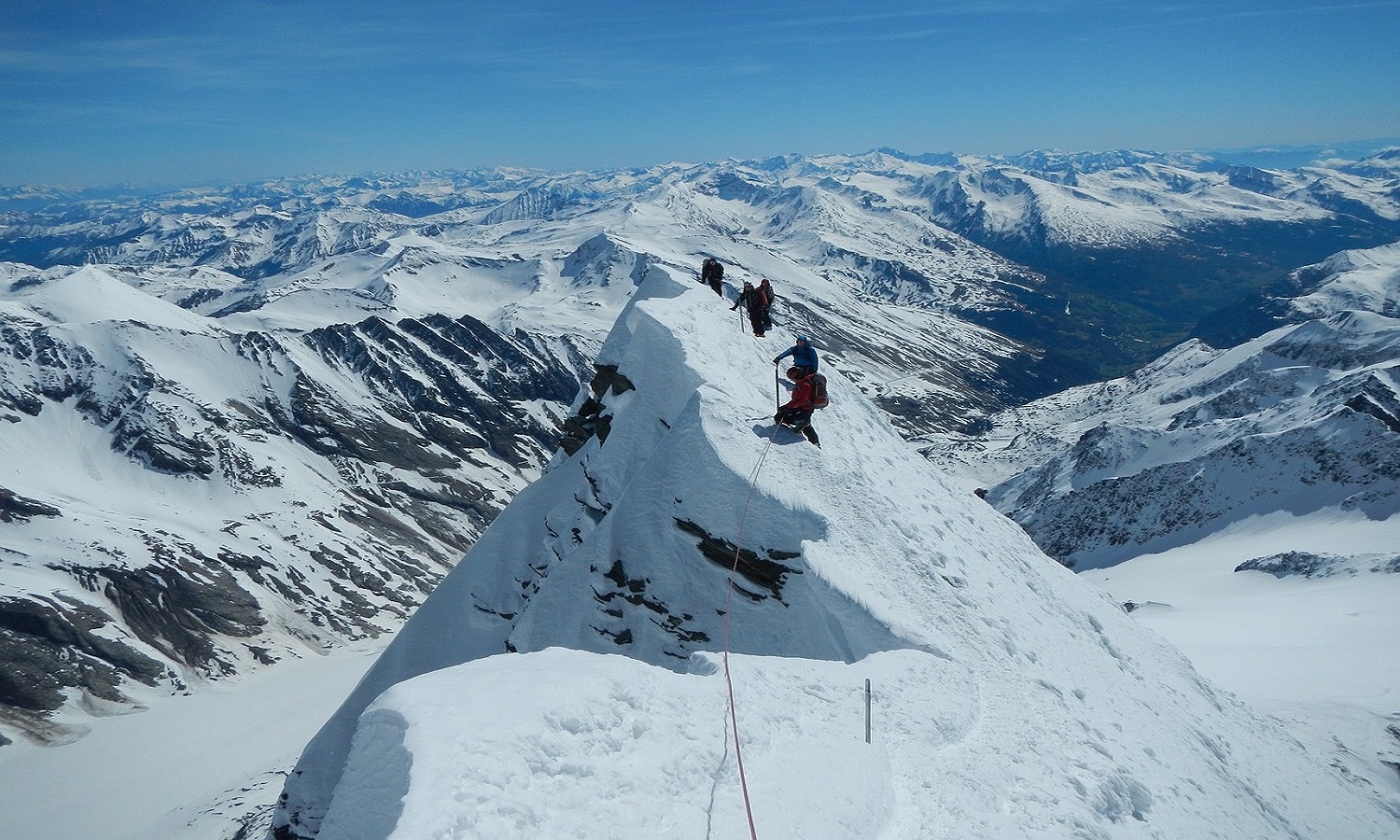
A 33-year-old Austrian woman tragically lost her life during a high-altitude ascent of the Grossglockner, Austria’s tallest peak at 3,798 meters (12,461 feet), over the weekend. Accompanied by her 36-year-old partner, the pair set off on Saturday, January 18, early in the morning from Kals, aiming to summit via the Stüdlgrat and descend through the Kleinglockner and Adlersruhe. Despite being equipped with high-altitude gear, their progress was slow due to challenging weather and “conditional and technical difficulties,” according to Tyrolean police.
By midnight, the climbers reached a point just 50 meters (164 feet) shy of the summit, where the woman, overcome with exhaustion, was unable to continue. Her partner descended to Adlersruhe via the Grossglockner peak to seek help, leaving her behind. A rescue team, including two alpine policemen and four mountain rescuers, embarked on a perilous night mission to reach the stranded climber. Strong winds and temperatures of -6°C (21°F), compounded by gusts and pitch-black conditions, made helicopter assistance impossible. The rescuers finally reached the woman at 10:10 a.m. on Sunday, January 19, but she had already succumbed to freezing temperatures. A doctor determined hypothermia as the cause of death, according to the police press release.
The tragedy has left the mountaineering community shaken, with Kalser mountain rescue leader Peter Tembler describing the recovery operation as “extremely tragic” for all involved. “Carrying or abseiling someone deceased under such circumstances is incredibly difficult,” Tembler said in an interview with Austrian newspapers.
The focus has now shifted to the woman’s 36-year-old partner, who had planned the route and was the more experienced alpinist. The Innsbruck Public Prosecutor’s Office has opened an investigation into suspected negligent homicide, citing a “leadership” role between the two climbers. Christian Viehweider, a Tyrolean police spokesperson, confirmed the inquiry, explaining that this is standard protocol in similar incidents.
According to the police, a first concerned message reached the police at 8:15 p.m. on Saturday evening when others spotted the pair’s torches ascending the Großglockner in poor conditions. Police surveyed the area by webcam and helicopter to determine their identity. Police tried countless times to reach the pair, however, were unsuccessful. A helicopter flight at 10:00 p.m. determined that the pair was not in trouble, but what causes suspicion is that the deceased woman’s partner did not call for help from the peak, where phone reception is understood to be fine. In an interview with ORF, mountain rescue worker Tony Riepler emphasized, “The body, especially the brain, no longer functions as it normally would in cold and stress. It is very important not to draw hasty conclusions, but wait for the outcome of the official investigations.”
Mountaineering experts have weighed in, including Glockner guide Peter Suntinger, who emphasized the extreme danger of the couple’s situation in. “In these circumstances and after such a long tour in the middle of the night, descending over the summit was madness. It’s a miracle the man survived,” he said. Police noted that the man did not require immediate medical treatment after the ordeal.
While authorities continue to investigate, the case is a stark reminder of the inherent risks of high-altitude climbing and the critical importance of meticulous preparation and decision-making in such extreme environments.